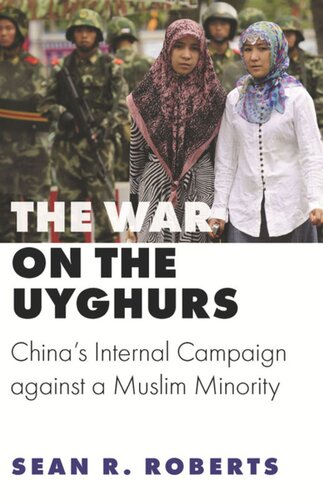

Most ebook files are in PDF format, so you can easily read them using various software such as Foxit Reader or directly on the Google Chrome browser.
Some ebook files are released by publishers in other formats such as .awz, .mobi, .epub, .fb2, etc. You may need to install specific software to read these formats on mobile/PC, such as Calibre.
Please read the tutorial at this link: https://ebookbell.com/faq
We offer FREE conversion to the popular formats you request; however, this may take some time. Therefore, right after payment, please email us, and we will try to provide the service as quickly as possible.
For some exceptional file formats or broken links (if any), please refrain from opening any disputes. Instead, email us first, and we will try to assist within a maximum of 6 hours.
EbookBell Team

5.0
40 reviewsHow China is using the US-led war on terror to erase the cultural identity of its Muslim minority in the Xinjiang region
Within weeks of the September 11 attacks on New York and Washington, the Chinese government warned that it faced a serious terrorist threat from its Uyghur ethnic minority, who are largely Muslim. In this explosive book, Sean Roberts reveals how China has been using the US-led global war on terror as international cover for its increasingly brutal suppression of the Uyghurs, and how the war's targeting of an undefined enemy has emboldened states around the globe to persecute ethnic minorities and severely repress domestic opposition in the name of combatting terrorism.
Of the eleven million Uyghurs living in China today, more than one million are now being held in so-called reeducation camps, victims of what has become the largest program of mass detention and surveillance in the world. Roberts describes how the Chinese government successfully implicated the Uyghurs in the global terror war—despite a complete lack of evidence—and branded them as a dangerous terrorist threat with links to al-Qaeda. He argues that the reframing of Uyghur domestic dissent as international terrorism provided justification and inspiration for a systematic campaign to erase Uyghur identity, and that a nominal Uyghur militant threat only emerged after more than a decade of Chinese suppression in the name of counterterrorism—which has served to justify further state repression.
A gripping and moving account of the humanitarian catastrophe that China does not want you to know about, The War on the Uyghurs draws on Roberts's own in-depth interviews with the Uyghurs, enabling their voices to be heard.